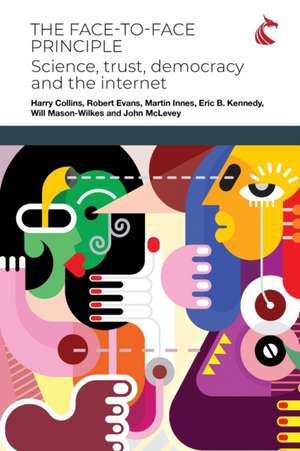The Face-to-Face Principle
Autor Harry Collins, Robert Evans, Martin Innesen Limba Engleză Paperback – 12 mai 2022
Preț: 123.71 lei
Nou
Puncte Express: 186
Preț estimativ în valută:
23.67€ • 24.78$ • 19.70£
23.67€ • 24.78$ • 19.70£
Carte tipărită la comandă
Livrare economică 31 martie-14 aprilie
Preluare comenzi: 021 569.72.76
Specificații
ISBN-13: 9781911653295
ISBN-10: 1911653296
Pagini: 282
Dimensiuni: 152 x 229 x 16 mm
Greutate: 0.41 kg
Editura: Ubiquity Press (Cardiff University Press)
ISBN-10: 1911653296
Pagini: 282
Dimensiuni: 152 x 229 x 16 mm
Greutate: 0.41 kg
Editura: Ubiquity Press (Cardiff University Press)
Notă biografică
Harry Collins is Distinguished Research Professor and Fellow of the British Academy. Widely acknowledged as a founder of the sociology of scientific knowledge, his most recent work is concerned with the norms and values that make science distinctive and the contribution this enables scientific institutions to make in democratic societies. ORCiD: https://orcid.org/0000-0003-2909-9035
